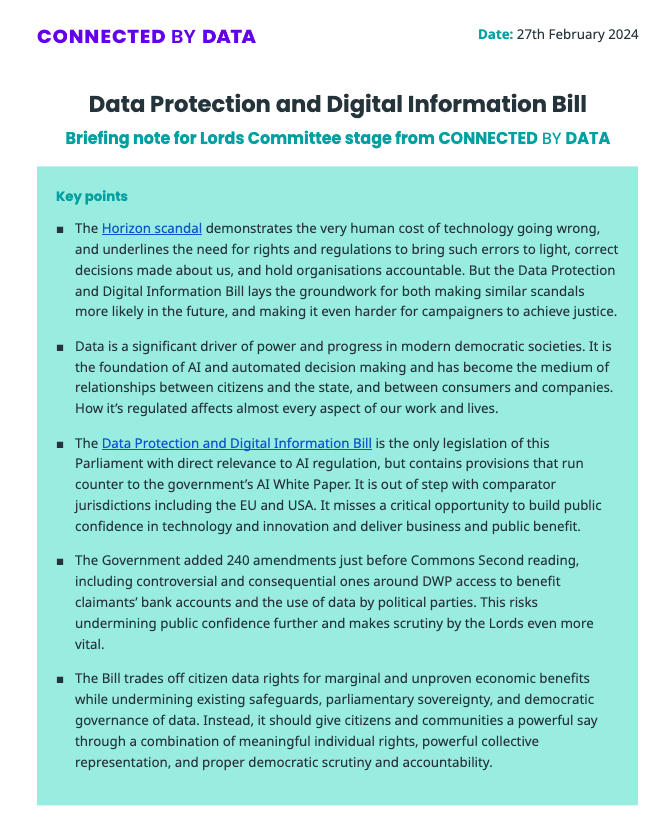This is our public briefing note for the Lords’ Committee stage on the UK’s Data Protection and Digital Information Bill.
Our key points are:
- The Horizon scandal demonstrates the very human cost of technology going wrong, and underlines the need for rights and regulations to bring such errors to light, correct decisions made about us, and hold organisations accountable. But the Data Protection and Digital Information Bill lays the groundwork for both making similar scandals more likely in the future, and making it even harder for campaigners to achieve justice.
- Data is a significant driver of power and progress in modern democratic societies. It is the foundation of AI and automated decision making and has become the medium of relationships between citizens and the state, and between consumers and companies. How it’s regulated affects almost every aspect of our work and lives.
- The Data Protection and Digital Information Bill is the only legislation of this Parliament with direct relevance to AI regulation, but contains provisions that run counter to the government’s AI White Paper. It is out of step with comparator jurisdictions including the EU and USA. It misses a critical opportunity to build public confidence in technology and innovation and deliver business and public benefit.
- The Government added 240 amendments just before Commons Second reading, including controversial and consequential ones around DWP access to benefit claimants’ bank accounts and the use of data by political parties. This risks undermining public confidence further and makes scrutiny by the Lords even more vital.
- The Bill trades off citizen data rights for marginal and unproven economic benefits while undermining existing safeguards, parliamentary sovereignty, and democratic governance of data. Instead, it should give citizens and communities a powerful say through a combination of meaningful individual rights, powerful collective representation, and proper democratic scrutiny and accountability.

